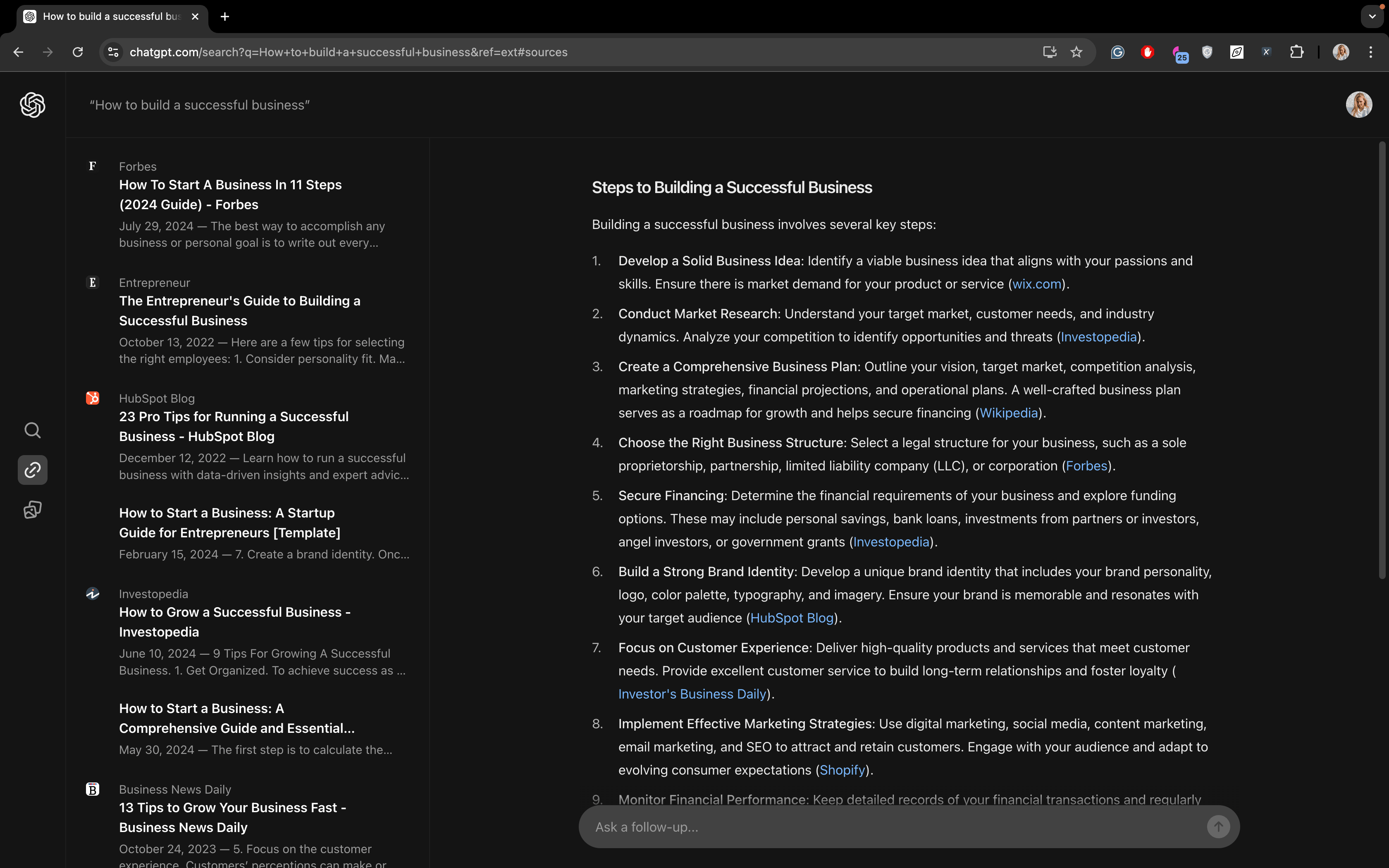Launching a website requires understanding key technical aspects. Two crucial components are web hosts and servers.
Confused about web hosts and servers? You’re not alone. Many people mix up these terms, but they play different roles. Knowing their differences can help you make informed choices for your website. A web host provides the space where your website lives.
A server, on the other hand, is the machine that stores your website’s data. Understanding these differences is vital for running a successful website. In this blog post, we will explore what sets web hosts and servers apart, and why knowing these differences matters. Stick around to get a clear picture and make the best decisions for your online presence.
Introduction To Web Hosting And Servers
Creating a website involves many steps. Two essential components are web hosting and servers. Understanding these can help you run a successful website.
What Is Web Hosting?
Web hosting is a service. It allows you to post your website on the internet. Think of it as renting space on the web. This space is on a server owned by a web hosting company.
Web hosting companies offer various plans. They cater to different needs and budgets. Shared hosting is a common option. It’s affordable and easy to use.
What Is A Server?
A server is a powerful computer. It stores all the data for your website. When someone visits your site, the server sends the data to their browser.
Servers come in different types. Dedicated servers are one option. They are powerful and offer complete control. Virtual servers are another choice. They are cost-effective and flexible.

Credit: www.top10.com
Types Of Web Hosting
Choosing the right type of web hosting is crucial for your website’s performance. There are several types of web hosting, each with its own unique features. Understanding these options will help you make the best decision for your needs. Here’s a detailed look at the types of web hosting available.
Shared Hosting
Shared hosting is one of the most popular types of web hosting. In this setup, multiple websites share the same server resources. This makes it very cost-effective and ideal for beginners or small websites.
- Low cost
- Easy to manage
- Limited resources
- Good for low traffic sites
Vps Hosting
VPS hosting stands for Virtual Private Server hosting. It offers more control and resources than shared hosting. Each website is hosted on a virtual private server, giving you more flexibility and power.
- More resources
- Better performance
- Higher cost than shared hosting
- Good for medium traffic sites
Dedicated Hosting
Dedicated hosting means you get an entire server for your website. This type of hosting provides the highest level of performance and control. It is suitable for websites with high traffic and resource needs.
- Exclusive server resources
- High performance
- High cost
- Ideal for large businesses
Cloud Hosting
Cloud hosting uses multiple servers to host your website. This ensures better reliability and scalability. Cloud hosting can handle high traffic and is ideal for growing websites.
- Scalable resources
- High reliability
- Pay-as-you-go pricing
- Good for unpredictable traffic
Types Of Servers
Choosing the right server is crucial for running a successful website. There are different types of servers you can consider. Each type has its unique advantages. Let’s break them down so you can decide what’s best for your website.
Physical Servers
Physical servers are dedicated hardware machines. They are located in a data center and used by a single client. These servers offer high performance and security. You have full control over the server’s resources. Physical servers are ideal for businesses with high traffic.
- Advantages: High performance, full control, enhanced security.
- Disadvantages: High cost, requires maintenance, not easily scalable.
Virtual Servers
Virtual servers run on a physical server. They use virtualization software to split resources. Each virtual server acts like a standalone machine. This option is cost-effective and flexible. You can easily scale resources as needed.
- Advantages: Cost-effective, scalable, easy to manage.
- Disadvantages: Shared resources, possible performance issues.
Cloud Servers
Cloud servers are a newer technology. They use a network of virtual servers. These servers pull resources from multiple physical machines. This setup ensures high availability and flexibility. Cloud servers are perfect for businesses expecting growth.
- Advantages: High availability, scalable, pay-as-you-go pricing.
- Disadvantages: Variable cost, dependent on internet connection.

Credit: seranking.com
Performance Comparison
Understanding the performance differences between web hosts and servers is crucial. It helps you run a successful website. Both affect speed, reliability, and scalability. This section explores these key performance factors.
Speed And Reliability
Speed is a vital factor for any website. Web hosts use shared resources. This can slow down your site during peak times. Dedicated servers, on the other hand, offer better speed. They provide resources solely for your website.
Reliability is another important aspect. Web hosts often have multiple users on one server. This can lead to server crashes. Servers dedicated to your site are more reliable. They reduce downtime and ensure smooth operation.
Scalability
Scalability determines how well your site can grow. Web hosts usually offer limited scalability. Shared resources can limit your site’s growth. Dedicated servers offer more flexibility. You can easily upgrade resources as needed.
Web hosts may offer scalable plans. But these plans often come with higher costs. Servers allow you to scale without such limitations. They provide a better long-term solution for growing websites.
Cost Considerations
Running a successful website involves understanding the costs associated with web hosting and servers. These costs can be divided into two main categories: upfront costs and ongoing costs. Knowing these differences helps in making an informed decision.
Upfront Costs
Upfront costs are the initial expenses you need to pay. For web hosting, these costs are usually lower. You pay for a hosting plan, which can range from a few dollars to a few hundred dollars per month.
Servers, on the other hand, can be more expensive. If you choose to buy a physical server, the cost can range from a few hundred to several thousand dollars. This includes hardware and setup.
| Expense Type | Web Hosting | Server |
|---|---|---|
| Initial Cost | $5 – $300/month | $500 – $5000+ (one-time) |
Ongoing Costs
Ongoing costs are the regular expenses you need to maintain your website. For web hosting, this includes monthly or yearly fees. Hosting providers may also charge for additional services like backups or security.
Servers have different ongoing costs. You need to consider maintenance, electricity, and possibly a faster internet connection. These costs can add up quickly.
- Hosting Fees: Monthly or yearly subscription
- Additional Services: Backups, security, and extra storage
- Server Maintenance: Regular updates and hardware repairs
- Electricity: Power to keep the server running
- Internet: Higher speed connections
Understanding these cost differences helps you budget effectively. Whether you choose web hosting or a server, knowing upfront and ongoing costs ensures your website runs smoothly.

Credit: www.top10.com
Security Features
Security features are crucial to running a successful website. They ensure your data stays safe and your site remains accessible. Knowing the security differences between web hosts and servers can help you make an informed choice.
Data Protection
Data protection involves keeping your information safe from unauthorized access. Web hosts provide basic security measures like firewalls and SSL certificates. These tools help prevent hackers from accessing your data.
Servers offer more advanced data protection options. They let you customize security settings to fit your needs. Advanced encryption and intrusion detection systems are often available.
Backup Solutions
Backup solutions are essential for recovering your data after a loss. Web hosts often include automatic backups in their plans. They store copies of your website data at regular intervals.
Servers give you more control over backup processes. You can schedule backups at specific times and choose where to store them. This flexibility ensures your data is always available, even if something goes wrong.
Control And Management
Control and management are crucial aspects of running a successful website. They determine how much power you have over your hosting environment. Understanding the differences between web hosts and servers can help you make an informed decision.
User Access
Web hosts offer limited user access. You usually get a control panel to manage your website. This is easy to use and doesn’t require technical knowledge. Perfect for beginners.
Servers provide full user access. You can manage every aspect of your hosting environment. This includes installing software and configuring settings. Ideal for advanced users who need more control.
Customization Options
Web hosts provide limited customization options. You can usually install popular applications like WordPress. But, you are restricted to the options provided by the host.
Servers offer extensive customization options. You can install any software and configure it to your needs. This flexibility allows you to tailor your hosting environment.
Choosing between a web host and a server depends on your control and management needs. Consider your technical skills and the level of customization you require.
Choosing The Right Solution
Deciding between a web host and a server is crucial for your website’s success. Each solution has its unique advantages and limitations. Your choice should align with your specific needs and capabilities. Let’s explore some key factors to help you make an informed decision.
Business Needs
Your business needs are the primary factor in choosing between a web host and a server. Consider the following points:
- Scalability: Do you expect your website traffic to grow significantly?
- Resources: Does your website require high bandwidth or storage?
- Customization: Do you need custom software or configurations?
- Budget: What is your allocated budget for hosting solutions?
If you run a small blog or a local business site, a web host might suffice. For large e-commerce sites or applications, a dedicated server could be more suitable.
Technical Expertise
Your technical expertise also plays a vital role in this decision. Assess your team’s skills with the following:
| Factor | Web Host | Server |
|---|---|---|
| Setup | Easy | Complex |
| Maintenance | Minimal | High |
| Security | Managed | Self-managed |
| Customization | Limited | Extensive |
If your team lacks technical skills, a web host is more user-friendly. For those with advanced technical knowledge, managing a server offers greater control and flexibility.
Frequently Asked Questions
What Is A Web Host?
A web host provides the services needed for a website to be accessible online. They store your site’s data on their servers. Web hosts manage server maintenance and provide technical support.
How Does A Server Work?
A server processes and delivers data to other computers over a network. It hosts websites and manages network resources. Servers ensure your website is always available to users.
Why Choose Web Hosting Over A Server?
Web hosting is simpler and more cost-effective. It includes server management and technical support. This lets you focus on your website content. Servers require more technical knowledge and maintenance.
Are Web Hosts And Servers The Same?
No, they are not the same. A web host provides server space and services for your website. A server is the hardware that stores and delivers your website data.
Conclusion
Choosing between a web host and a server is crucial. Each has unique features. Web hosts offer managed services and ease of use. Servers provide more control and flexibility. Your choice impacts your website’s performance and success. Understand your needs and budget.
Make an informed decision. This ensures your website runs smoothly and efficiently. Happy hosting!




